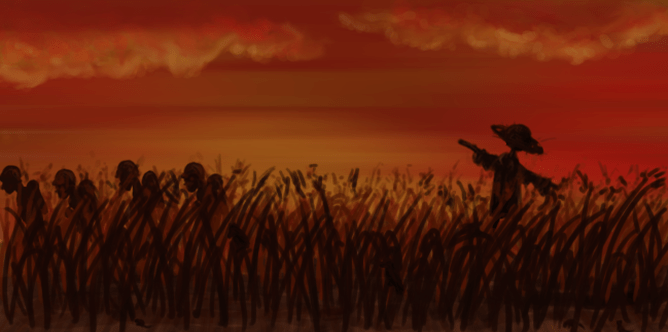Welcome back to the Clear Education Blog! Here we will explore further into another of T.S. Eliot’s poems for Module B, The Hollow Men. In this poem, Eliot’s portrays the confronting spiritual and psychological isolation of the hollow men in order to reflect the feelings and struggles of the modern man in a continuously evolving world.
Context
One aspect which Eliot focuses upon is the futility and mundanity of life in a world where
individuals are forced to conform to society’s artificial conventions. The poem comes almost
10 years after Lovesong was written where WWI has ended, leaving Europe under the
Treaty of Versailles which Eliot despised. This influenced him to portray a monotonous and
industrialized post-war world which lacked connection and hope.
Examples/Techniques/Analysis:
Here are a couple examples and analysis to help you start; remember to connect with the
given question and reinforce the influence of the composer’s context on key values.
Eliot’s advocacy of modernism as making it ‘new’, demonstrates the bleakness of modernity in a declining society, which emphasizes the meaninglessness of human life. The anaphora, “We are the hollow men, we are the stuffed men” suggests a paradoxical view of society being ‘stuffed’ and filled but with materialistic and futile views of life. This demonstrates how individuals have become empty and ‘dead’ in their own society, becoming devoid of human emotion and therefore exists in a meaningless environment. The star motif “The valley of dying stars” further depict the idea that stars which usually connote light and vitality are instead withering away in the ‘hollow valley’, emphasizing the struggle to achieve moral awareness and find meaning in life in the industrialized world.
It would be good to add a critical quote within your essay in order to enhance and support
your argument. One example could be to use Baudelaire, who talks about Eliot’s intentions
in depicting the idea of futility, saying that he thought it “was better for humans to do evil
than to do nothing; at least we exist”. Here, Baudelaire explores how Eliot is critiquing
society and referring to this meaningless of life for those who now live in the stagnant
society. He is comparing these hollow men who have done nothing and remained in a state
of emptiness and materialism, to those who have done something, even though it may be
seen as evil.
*Please note that while this information is a great starting point for these texts, relying solely on the information in this post will not be enough to get a result in the top bands.

